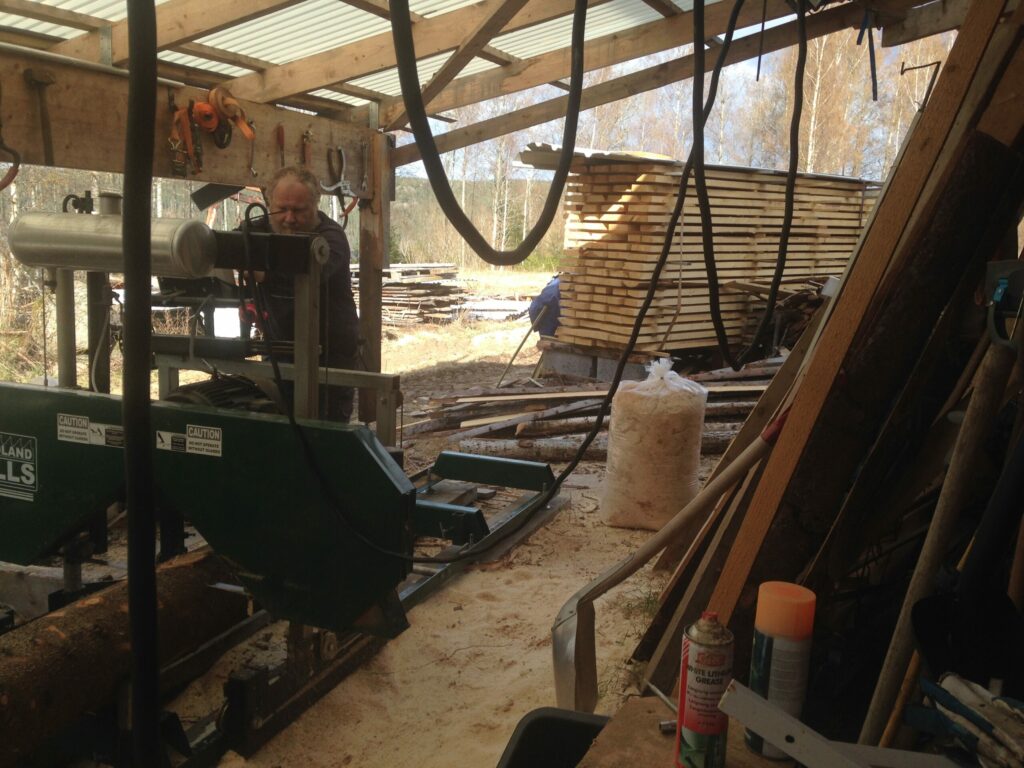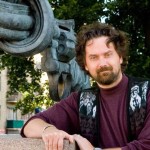A Research Center in the Scandinavian Forest Nourishes Resistance
ACTIVISM, 12 Jul 2021
Stellan Vinthagen | Waging Nonviolence - TRANSCEND Media Service
Home to a large library, writers residence and a vast garden, the Irene Community in Sweden welcomes activists and academics to explore nonviolent activism.
6 Jul 2021 – Due to the coronavirus chaos I stayed in lockdown in Sweden most of the first part of 2020, forced to cancel my regular and intensive travel program to different frontline communities. After cancelling my trips to India, Hawaii, Uganda, Iceland and the United States, I stayed where I happened to be in my vagabond way of life. I regularly live shorter periods in my native southern Sweden, to visit my academic colleagues at the Civil Society, Social Movement and Resistance Research, or CSM-RESIST, at the University of Gothenburg, and the Nordic Nonviolence Study Group, or NORNONS. When I am here, I live in a red painted, wooden house from the early 20th century, way out in the countryside, surrounded by a large forest and a huge lake. This is where we find the Irene Community, in the district of Dalsland, Sweden, very close to the border of Norway. It is, so to speak, between Oslo and Gothenburg.
Since 2017 I have been a member of this tiny, informal and important community of six unusual people and five wooden houses. We all work in some way as academic-activists against war, imperialism, terrorism and violent structures in societies, with a focus on research, education and activism, and have together a vast international network of projects we are engaged with. This is the base of a book publishing house (Irene Publishing), and a Writers Residence with an outstanding library of some 20,000 books on resistance, activism and peace studies. The community is also home of our now 14-year-old activist-scholar group NORNONS, which meets two or three weekends annually. Three of us work to produce the Journal of Resistance Studies, the world’s only peer-reviewed academic journal focused on resistance. At the Irene Community, there is also a vast vegetable garden, a couple of greenhouses, a saw mill, and a lot of small separate buildings for workshops, guests and offices. Since 2020 we have also built a new henhouse and a sauna by the lake for enjoying the cold snowy winter months, and now we have installed high speed fiber optic and Wi-Fi in our offices.
Activists and scholars from all over the world visit our Residence, for example students who need to work on a thesis, authors trying to finish a book, or activists who need to recharge their batteries, reflect, take long walks in the beautiful nature and read books. We who live here, and temporary guests, eat dinners regularly together and discuss anarchism, pacifism, the world revolution and our experiences of struggle in different parts of the world, or we talk about the current plans for the vegetable garden, or how to avoid the annoying ticks in the forest. That is possible when we are not interrupted by the lovely and playful dog Liva who tries, and sometimes succeeds, to get all attention, in order to engage us in games, or, when that does not work, barks loudly to warn us of some (imaginary) Elk or neighbor passing by the house.
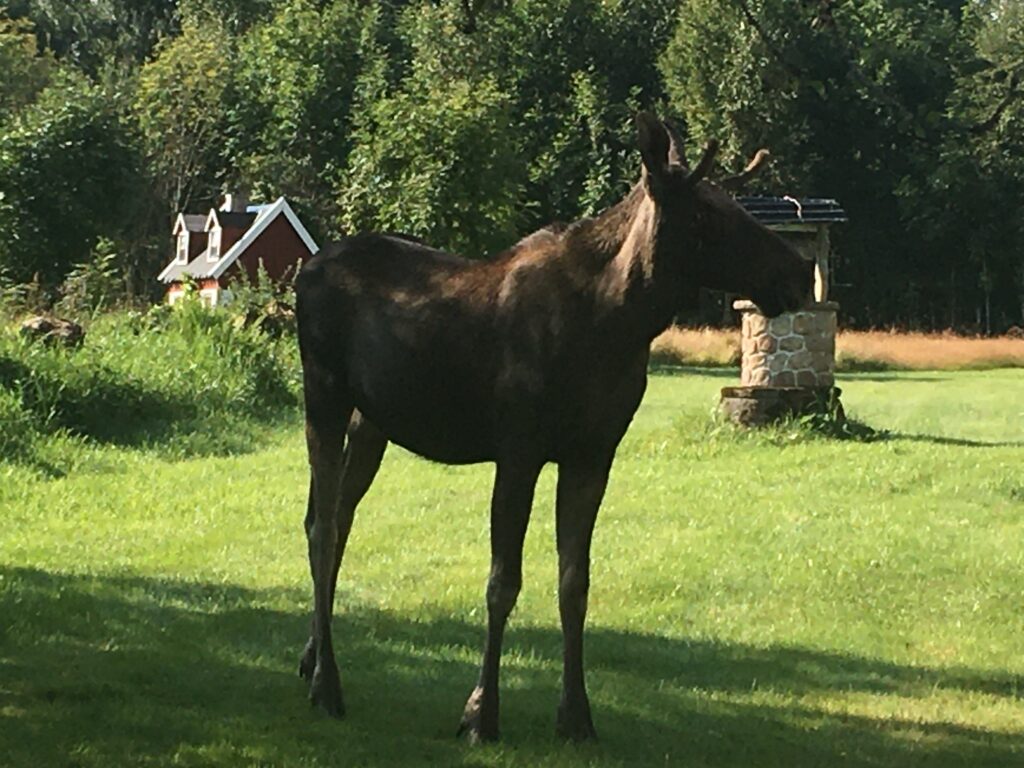
Since we hardly have any neighbors at all, and are far from even a town, it is very quiet and we have amazing night skies of a star sprinkled cosmos. We have a tight community with regular coffee breaks in the greenhouse, with practical garden work, house building projects or wood chopping together. It is a truly lovely place, way out in the deep dark Scandinavian forest of evergreen pine, spruce, ash, aspen, hazel, maple and birch. In this part of the world we supposedly live with mythical creatures such as elves, trolls and tomtar, but we mostly see deer, birds, hare and the occasional wild boar or elk.
In the Irene Community lives Majken, Jørgen, Asma, Björn, and occasionally Craig and I, and of course Liva the dog. We are all kind of odd creatures, a friendly bunch for sure, and very dedicated people, far from what might be seen as normal, perhaps even more accurately described as “nerds.” The most normal one of us is probably Liva.
Majken is a professor of sociology at Karlstad University and completed her PhD in Australia on “humorous political stunts”, i.e. how resistance activists use humor in struggles. She has also published books on female resistance to conscription, strategies against repression and peace activism. Majken was born in Denmark and is married to Jørgen, who is Norwegian by birth. Majken has been part of the International Council of War Resisters’ International, a London-based antimilitarist network, but which has affiliate groups and movements in a third of countries globally.
Majken spends a lot of time in the garden, which provides all the basics to her and Jørgen’s household. At Karlstad University she is building up a resistance studies environment, with both undergraduate and graduate courses on resistance, grant applications for research projects, thematic issues in journals and book projects. Her new online courses on resistance have received considerable attention from students at the university, something that is promising for the future of resistance studies. Majken is also involved (together with Jørgen) in developing the first high school peace program on nonviolent conflict transformation at a Montessori school (in the nearby Norwegian town of Halden). They have both written a textbook for this quite radical curriculum. Besides being an accomplished dog trainer, Majken is a brave experimenter with the truth in the kitchen, always blessing us with new Indian dishes.

Majken’s husband, Jørgen, is many things, among them a legendary Norwegian activist in antimilitarism and environmental struggles, who has participated in various civil disobedience actions since the 1970s. He was even accused of spying during the Cold War, when he narrowly avoided a long prison sentence by one vote in the Supreme Court. That became a major political story in Norway when the peace magazine Ikkevold, which translates to Nonviolence, researched and published complete maps of all the nuclear weapons infrastructure that the United States and NATO had created in Norway, making Norway into a de facto priority target for Soviet bombing in case of a crisis (something that went against all the public agreements, without the knowledge of even most parliamentarians).
Jørgen is also something as unusual as a self-taught academic! With pride he declares he has never taken any courses at university, not even borrowed a book, but he has published more academic journal articles and books than the average professor. He has initiated and led postgraduate education programs in Norway, France, Georgia and Turkey, to name just a few, while he is also an accomplished guest professor at numerous universities around the world. Jørgen has worked tightly with some of the more internationally known academics from Norway (such as Sigmund Kvaløy, Johan Galtung and Arne Næss).
Over the course of his life he has collected a substantial library of academic books. He claims he has at least “read inside most of them,” which I take as him suggesting he seldom finishes a book. That is probably since he is busy with so many practical projects. Jørgen is a former sheep farmer and miller, and still an active carpenter and builder with his own saw mill (which makes him popular among our few neighbors in the area), and today is the deputy editor of the Journal of Resistance Studies. Jørgen enjoys spending half the day reading, writing, checking the news, emailing and the other half working practically — building houses, or taking down trees in his “outdoor gym.” An unusual habit of Jørgen is that he sleeps with his earphones on, listening to the BBC news.
Asma is from the North African Indigenous community of Amazigh (the people who are in a colonial and derogative way named “Berber”). She grew up in Libya under Qaddafi and was early on involved in women’s rights activism, and has been working a lot with civil society organizations in the country. After experiencing the horrors of the war when she worked at a hospital treating wounded people, she has focused more on peacebuilding and nonviolent conflict management, particularly in Libya, but also more broadly in the region. Together with her Norwegian husband Bjørn, she took a Master’s course in Istanbul on peace studies, where Jørgen was a teacher. The goal was to develop her knowledge of how to work more efficiently for peace and justice. She knows a lot of Muslim theology and has taught me about Muslim feminism.
Asma is now doing her PhD in political science on women, war and peace, at the University of Marburg, while simultaneously working for the UN and other international organizations on different security programs in Libya. She is particularly interested in transforming armed and unarmed youth, encouraging them to reject violent means to achieve their aims and instead turn towards peaceful work in civil society, applying nonviolent means of struggle. Asma has won the Luxembourg Peace Prize, and in 2017 was named among the 100 most influential young Africans by the Africa Youth Awards.
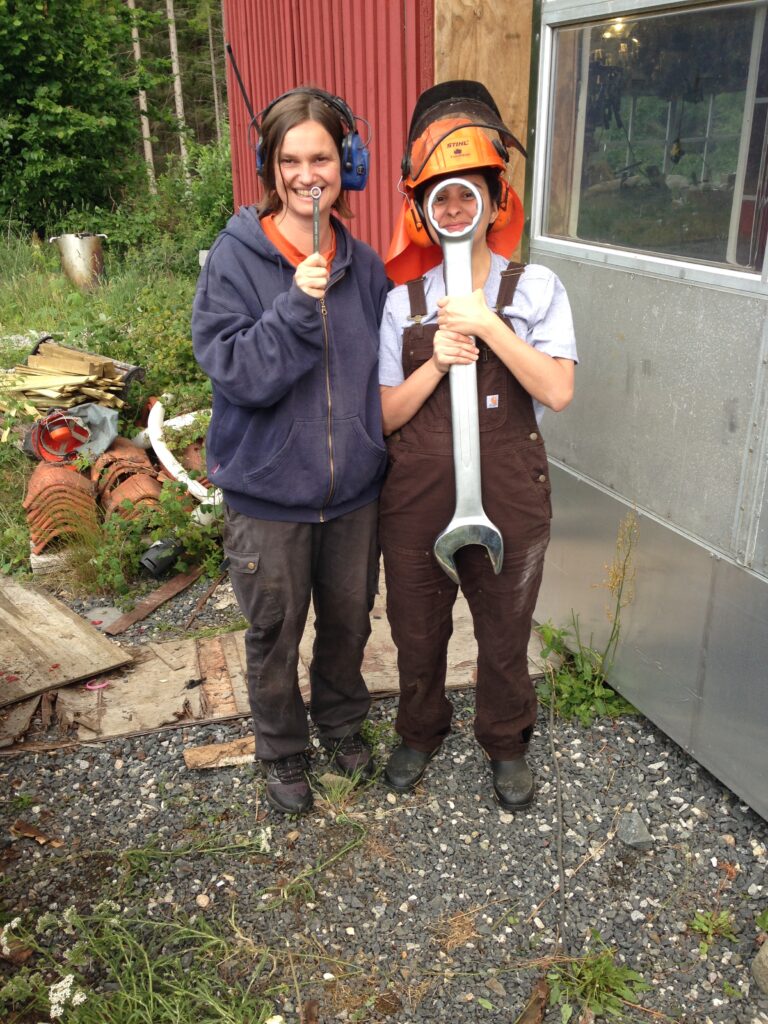
Bjørn is from Norway and has been involved in both local and global politics, hacking and activism, for more inclusive and peaceful communities and human rights. He is a survivor of the white supremacist terror attack on Utøya in Norway 2011, when Breivik killed 77 people. Today he works with the UN and EU on different programs against “violent extremism,” such as Extremely Together via the Kofi Annan Foundation.
Together with Asma, he co-founded the Khalifa Ihler Institute, a small NGO engaging in peacebuilding efforts, research and capacity building. Among other activities their “Hate Map” documents the actions of the global far right, while the Activism Academy serves as a portal for those who wish to get engaged in political activism building on universal values. Over the years, Bjørn has probably met more reformed extremists than anyone else. He is a staunch believer in human rights, including for people like Breivik and other extremists, and serves both as a member of the Independent Advisory Committee of the Global Internet Forum to Counter Terrorism –– a super-group consisting of companies such as Facebook, Twitter, Google and Microsoft seeking to address the proliferation of hate speech and terrorism propaganda on their platforms –– as well as the Irene Community’s Internet techie.
Craig is from the United Kingdom and did his PhD on the nonviolent revolution in Tunisia, where he also met his partner, who is doing her Master’s in international relations at a university in Poland. Craig completed his PhD at Leeds Beckett University in the UK, and today is a departmental affiliate in Sociology at UMass Amherst, working closely with the Resistance Studies Initiative based there, for example as book review editor for the Journal of Resistance Studies. He works as a proofreader, transcriber of academic texts, both as a freelancer and through his own company. That means he can stay (like me) for periods in the community, and otherwise abroad, mainly the UK and Poland.
Craig has a hidden talent as a former performing guitarist, although not much time is left for doing that at the moment. The guitar in our house (borrowed from Björn) is mostly used by me, a hopeless but spirited amateur. During Craig’s periods in the community he works diligently with organizing our library according to a system similar to the peace library at Bradford University, and cataloging it all in a digital format. This will make it possible for researchers and authors to easily find the literature they need when they work here at our Residence.
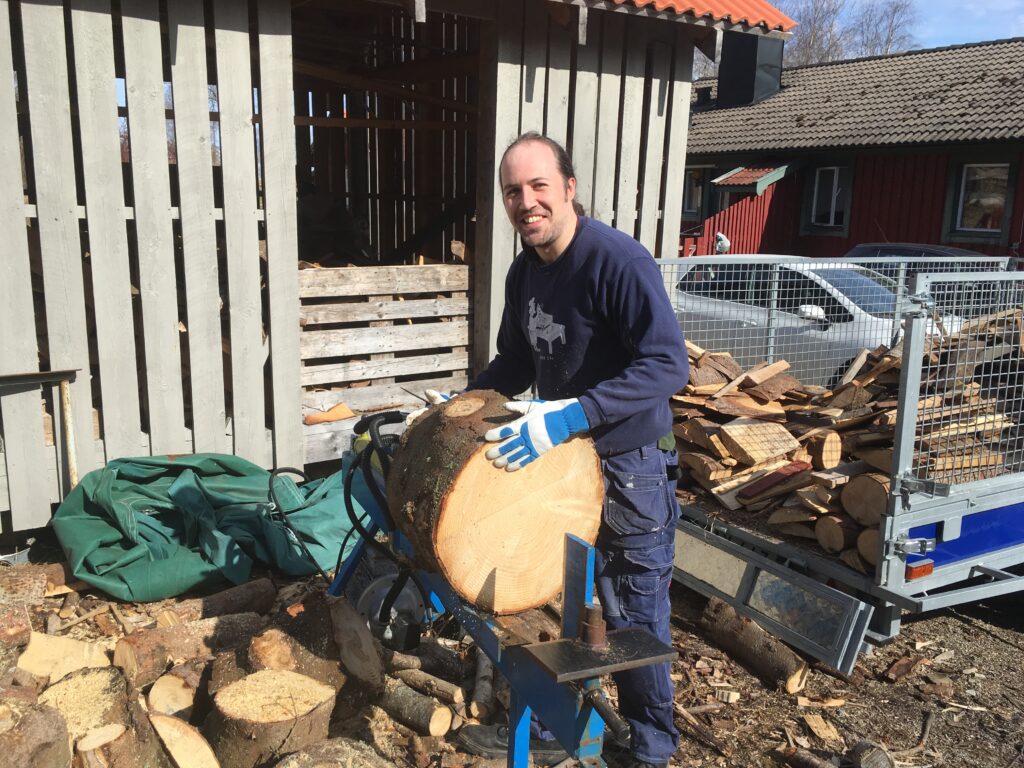
The Irene Residence is visited by activists, academics and authors for shorter or longer periods. Since we have five houses and more than 20 beds in extra rooms and smaller huts, we have the capacity to hold workshops as well as receive long-term visitors. Over the years, we have had visitors from the UK, India, the United States, Turkey, Brazil, Egypt, Palestine, Catalonia, Iraq, Georgia, Russia, Finland, Belarus, Estonia, Latvia, the Basque Country and many other places, besides having groups from all over Europe at some of our workshops and camps. Some of the visitors are old friends catching up with us while traveling in Europe, others need time to complete some writing, while having access to a major library, using the silence in nature and the focus possible in the countryside, and the unique service of a group of experienced activist-academics who regularly have social gatherings, and are willing to make comments on drafts of texts. I have also created a small fund built from honorariums collected from my external lectures that gives economic support for activists from the Global South to come and use the Residence. Thus, the Irene Residence with its library is one way in which we try to make our remote community into a resource and meeting space for various social change workers in the world.
The NORNONS is a small group of Scandinavian activists and/or academics focused on nonviolent activism who have gathered regularly over the last 14 years. We focus on critical reflections of nonviolent resistance made possible among people committed to long-term work, where all have a basic knowledge about both nonviolent activism and resistance theory. We have fostered a climate of critical reflections focused on prevalent challenges and problems, where we avoid the simplified, rhetoric versions that organizers tend to use to represent their struggle in the media or to recruit new activists. We do this since we aim for a creative development of the repertoire of tactics, strategies and understandings of nonviolent activism, exploring both its strengths and weaknesses, examining contemporary theories and empirical articulations. Sometimes we write together, but mostly we discuss individual drafts or ideas, as well as key texts written by others we find.
We often work on particular themes during longer periods, for example how nonviolent resistance relates to “everyday resistance,” “sacrifice” or “courage,” how it can effectively deal with non-state terrorism, bring about revolutions, creatively adapt to and transform culture, or the role of building of alternatives and visions in resistance movements. Occasionally we make grant applications for research projects or evaluations, but mostly we rely on our income from jobs within academia or civil society, and instead let the seminars of NORNONS feed into our regular jobs. Many of our discussions are about challenges we encounter: problematic trends within activism, political issues where activism seems ineffective, or job-related dilemmas where we look for feedback from others. We are eager to entertain guests, people with specialized knowledge or interests who can expand our views. To me, NORNONS has been absolutely essential, enabling me to be more focused, write more regularly and helping me to develop a way of letting activist concerns and problems feed into my academic writing, teaching and organizing.
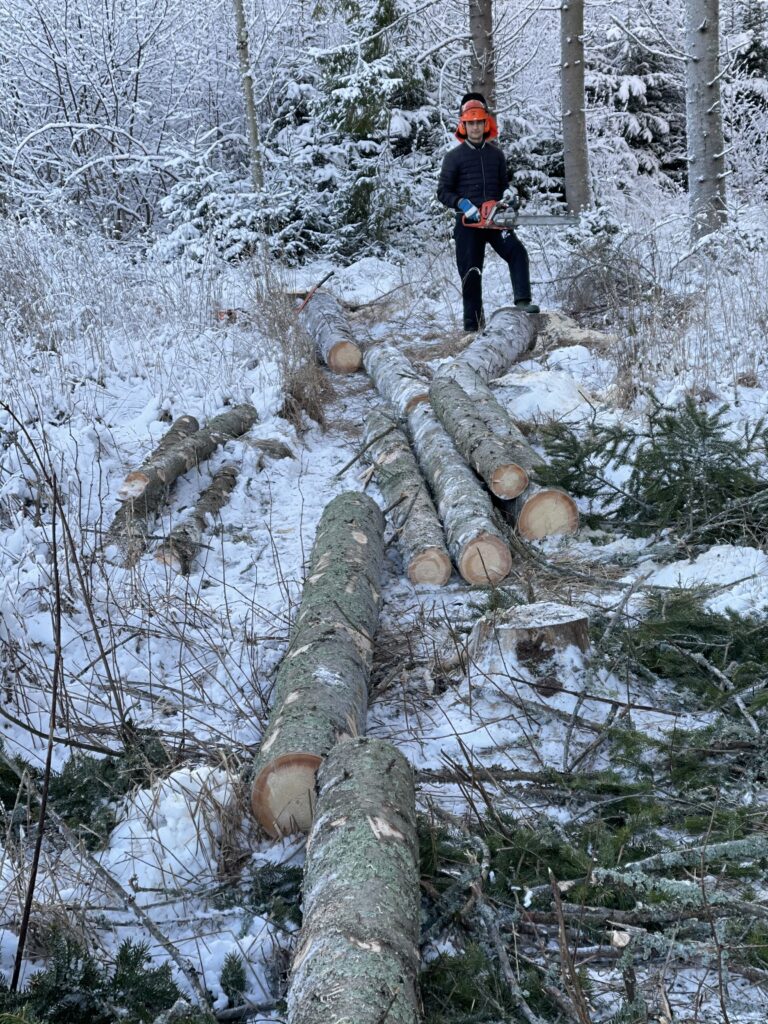
In a way, NORNONS is at the heart of the Irene Community. We are a small yet dedicated group of people who see ourselves as students and caretakers of a long tradition of nonviolent activism, aiming to be part of developing it to the benefit of new generations and struggles in the future. Since we live in a kind of little village with our own houses, with nearly no neighbors, we live a life of reading, reflection and writing by ourselves, while getting together for practical work with the houses or the garden, for “fika” (the Swedish culture of taking breaks by drinking coffee together and enjoying some snacks), regular meals, or by just hanging out together in the evening, talking and drinking wine, or occasionally watching a movie. I often take walks in the forest or by the lake. Sometimes I walk with Liva, although it feels more like she is walking me. She is either making me stop when she has found something to sniff at or a pool of water to roll around in, or forcing me to walk fast when she is dragging me with her towards something interesting. Yet, she is part of the community, so I endure and enjoy exploring nature from the perspective of a dog. In the fall we pick berries and mushrooms in the forest. Together with fruits from the garden we make jam and other delicacies to be consumed during the winter time.
Whenever possible, I try to get out in the large lake in my kayak, which is very relaxing, filled with beautiful views, silence and the occasional magic of sunrise or sunset. Sometimes I have gone out with the kayak during the darkest night time, with the stars above and totally black water below, enveloped in the silence. It feels like being in a different dimension. And, kayaking is a great exercise as well. During this spring I have also tended more to the garden than otherwise, planted three beautiful rose bushes, potatoes, carrots, beetroots, lettuce, and soon there will also be two new fruit trees covering the south wall of my house.
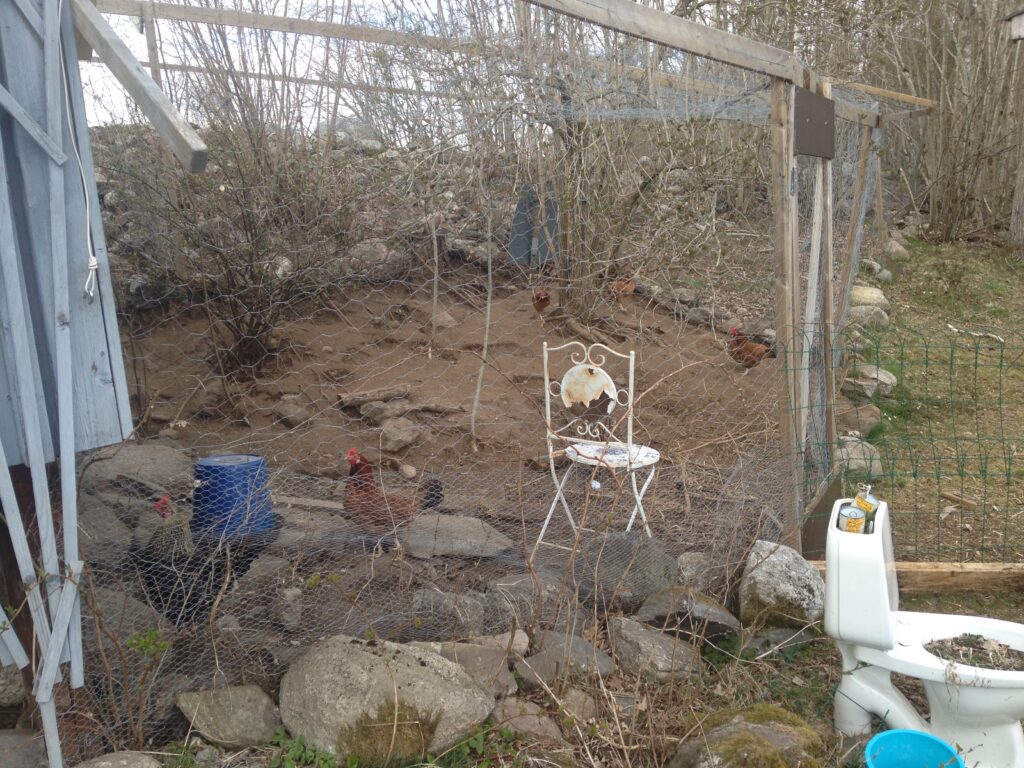
Irene is a fantastic place, with fascinating people and important activities. However, it is precariously small and remote, both in a good and bad way (about a three-hour drive to Gothenburg, and two hours to Oslo). It is only Majken and Jørgen that stay here permanently, all others are coming and going away for longer periods of travels and work. For me it can sometimes be half a year between the times I am here. Our hope is that in the future some more people like us, dedicated activist academics, will move here and join our community of nonviolent preppers getting ready for the uprising of the people. We do indeed have the space for welcoming more unconventional people like us, and the community fills a potential role for a future of beautiful struggles. Check it out! Shorter or longer visits are possible.
________________________________________________
Stellan Vinthagen is a professor of sociology, a scholar-activist, and the Inaugural Endowed Chair in the Study of Nonviolent Direct Action and Civil Resistance at the University of Massachusetts, Amherst, where he directs the Resistance Studies Initiative.
Jørgen Johansen is a nonviolence author/activist, editor of Irene Publishing, and a member of the TRANSCEND Network from Norway living amongst the trees in Southern Sweden. He is the co-editor of the Journal of Resistance Studies and coordinator of the Nordic Nonviolence Study Group, or NORNONS. After 40 years of work in more than 100 countries he has settled and is inspired by Cicero: “If you have a garden and a library, you have everything you need.”
Go to Original – wagingnonviolence.org
Tags: Activism, Civil Disobedience, Nonviolence, Nonviolent Action, Nonviolent communication, Protests
DISCLAIMER: The statements, views and opinions expressed in pieces republished here are solely those of the authors and do not necessarily represent those of TMS. In accordance with title 17 U.S.C. section 107, this material is distributed without profit to those who have expressed a prior interest in receiving the included information for research and educational purposes. TMS has no affiliation whatsoever with the originator of this article nor is TMS endorsed or sponsored by the originator. “GO TO ORIGINAL” links are provided as a convenience to our readers and allow for verification of authenticity. However, as originating pages are often updated by their originating host sites, the versions posted may not match the versions our readers view when clicking the “GO TO ORIGINAL” links. This site contains copyrighted material the use of which has not always been specifically authorized by the copyright owner. We are making such material available in our efforts to advance understanding of environmental, political, human rights, economic, democracy, scientific, and social justice issues, etc. We believe this constitutes a ‘fair use’ of any such copyrighted material as provided for in section 107 of the US Copyright Law. In accordance with Title 17 U.S.C. Section 107, the material on this site is distributed without profit to those who have expressed a prior interest in receiving the included information for research and educational purposes. For more information go to: http://www.law.cornell.edu/uscode/17/107.shtml. If you wish to use copyrighted material from this site for purposes of your own that go beyond ‘fair use’, you must obtain permission from the copyright owner.
